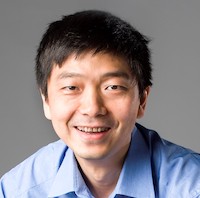
Andrew Janowczyk, PhD
Assistant Professor
Department of Biomedical Engineering
Emory University
Title: Computational Pathology: Towards Precision Medicine
Abstract:
Roughly 40% of the population will be diagnosed with some form of cancer in their lifetime. In a large majority of these cases, a definitive cancer diagnosis is only possible via histopathologic confirmation on a tissue slide. With the increasing popularity of the digitization of pathology slides, a wealth of new untapped data is now regularly being created.
Computational analysis of these routinely captured H&E slides is facilitating the creation of diagnostic tools for tasks such as disease identification and grading. Further, by identifying patterns of disease presentation across large cohorts of retrospectively analyzed patients, new insights for predicting prognosis and therapy response are possible [1,2]. Such biomarkers, derived from inexpensive histology slides, stand to improve the standard of care for all patient populations, especially where expensive genomic testing may not be readily available. Moreover, since numerous other diseases and disorders, such as oncoming clinical heart failure [3], are similarly diagnosed via pathology slides, those patients also stand to benefit from these same technological advances in the digital pathology space.
This talk will discuss our research aimed towards reaching the goal of precision medicine, wherein patients receive optimized treatment based on historical evidence. The talk discusses how the applications of deep learning in this domain are significantly improving the efficiency and robustness of these models [4]. Numerous challenges remain, though, especially in the context of quality control and annotation gathering. This talk further introduces the audience to open-source tools being developed and deployed to meet these pressing needs, including quality control (histoqc.com [5]), annotation (quickannotator.com), labeling (patchsorter.com), validation (cohortfinder.com).

Melissa McCradden, PhD
John and Melinda Thompson Director of Artificial Intelligence in Medicine
Integration Lead, AI in Medicine Initiative
Bioethicist, The Hospital for Sick Children (SickKids)
Associate Scientist, Genetics & Genome Biology
Assistant Professor, Dalla Lana School of Public Health
Title: What Makes a ‘Good’ Decision? An Empirical Bioethics Study of Using AI at the Bedside
Abstract: This presentation will identify the gap between AI accuracy and making good clinical decisions. I will present a study where we develop an ethical framework for clinical decision-making that can help clinicians meet medicolegal and ethical standards when using AI that does not rely on explainability, nor perfect accuracy of the model.

Marzyeh Ghassemi, PhD
Assistant Professor, Department of Electrical Engineering and Computer Science
Institute for Medical Engineering & Science
Massachusetts Institute of Technology (MIT)
Canadian CIFAR AI Chair at Vector Institute
Title: Designing Machine Learning Processes For Equitable Health Systems
Abstract
Dr. Marzyeh Ghassemi focuses on creating and applying machine learning to understand and improve health in ways that are robust, private and fair. Dr. Ghassemi will talk about her work trying to train models that do not learn biased rules or recommendations that harm minorities or minoritized populations. The Healthy ML group tackles the many novel technical opportunities for machine learning in health, and works to make important progress with careful application to this domain.

Hoifung Poon, PhD
General Manager at Health Futures of Microsoft Research
Affiliated Professor at the University of Washington Medical School.
Title: Advancing Health at the Speed of AI
Abstract: The dream of precision health is to develop a data-driven, continuous learning system where new health information is instantly incorporated to optimize care delivery and accelerate biomedical discovery. In reality, however, the health ecosystem is plagued by overwhelming unstructured data and unscalable manual processing. Self-supervised AI such as large language models (LLMs) can supercharge structuring of biomedical data and accelerate transformation towards precision health. In this talk, I’ll present our research progress on biomedical AI for precision health, spanning biomedical LLMs, multi-modal learning, and causal discovery. This enables us to extract knowledge from tens of millions of publications, structure real-world data for millions of cancer patients, and apply the extracted knowledge and real-world evidence to advancing precision oncology in deep partnerships with real-world stakeholders.

Despina Kontos, PhD
Matthew J. Wilson Professor of Research Radiology II
Associate Vice-Chair for Research, Department of Radiology
Perelman School of Medicine
University of Pennsylvania
Title: Radiomics and Radiogenomics: The Role of Imaging, Machine Learning, and AI, as a Biomarker for Cancer Prognostication and Therapy Response Evaluation
Abstract: Cancer is a heterogeneous disease, with known inter-tumor and intra-tumor heterogeneity in solid tumors. Established histopathologic prognostic biomarkers generally acquired from a tumor biopsy may be limited by sampling variation. Radiomics is an emerging field with the potential to leverage the whole tumor via non-invasive sampling afforded by medical imaging to extract high throughput, quantitative features for personalized tumor characterization. Identifying imaging phenotypes via radiomics analysis and understanding their relationship with prognostic markers and patient outcomes can allow for a non-invasive assessment of tumor heterogeneity. Recent studies have shown that intrinsic radiomic phenotypes of tumor heterogeneity for cancer may have independent prognostic value when predicting disease aggressiveness and recurrence. The independent prognostic value of imaging heterogeneity phenotypes suggests that radiogenomic phenotypes can provide a non-invasive characterization of tumor heterogeneity to augment genomic assays in precision prognosis and treatment.

Daguang Xu, PhD
Senior Research Manager
NVIDIA Healthcare
Title: Industrial Applied Research in Healthcare and Federated Learning at NVIDIA
Abstract: As the market leader in deep learning and parallel computing, NVIDIA is fully committed to advancing applied research in medical imaging. Our goal is to revolutionize the capabilities of medical doctors and radiologists by equipping them with powerful tools and applications based on deep learning. We firmly believe that the integration of deep learning and accelerated AI will have a profound impact on the life sciences, medicine, and the healthcare industry as a whole. To drive this transformative process, NVIDIA is actively democratizing deep learning through the provision of a comprehensive AI computing platform specifically designed for the healthcare community. These GPU-accelerated solutions not only promote collaboration but also prioritize the security of each institution’s information. By doing so, we are fostering a collective effort in harnessing the potential of deep learning to benefit healthcare.
During this talk, I will showcase remarkable research achievements accomplished by NVIDIA’s deep learning in medical imaging team. This includes breakthroughs in segmentation, self-supervised learning, federated learning, and other related areas. Additionally, I will provide insights into the exciting avenues of research that our team is currently exploring.

Negar Golestani, PhD
Postdoctoral Research Fellow
Department of Radiology
Stanford University
Title: AI in Radiology-Pathology Fusion Towards Precise Breast Cancer Detection
Abstract: Breast cancer is a global public health concern with various treatment options based on tumor characteristics. Pathological examination of excised tissue after surgery provides important information for treatment decisions. This pathology processing involving the manual selection of representative sections for histological examination is time-consuming and subjective, which can lead to potential sampling errors. Accurately identifying residual tumors is a challenging task, which highlights the need for systematic or assisted methods. Radiology-pathology registration is essential for developing deep-learning algorithms to automate cancer detection on radiology images. However, aligning faxitron and histopathology images is difficult due to content and resolution differences, tissue deformation, artifacts, and imprecise correspondence. We propose a novel deep learning-based pipeline for affine registration of faxitron images (x-ray representations of macrosections of ex-vivo breast tissue) with their corresponding histopathology images. Our model combines convolutional neural networks (CNN) and vision transformers (ViT), capturing local and global information from the entire tissue macrosection and its segments. This integrated approach enables simultaneous registration and stitching of image segments, facilitating segment-to-macrosection registration through a puzzling-based mechanism. To overcome the limitations of multi-modal ground truth data, we train the model using synthetic mono-modal data in a weakly supervised manner. The trained model successfully performs multi-modal registration, outperforms existing baselines, including deep learning-based and iterative models, and is approximately 200 times faster than the iterative approach. The application of proposed registration method allows for the precise mapping of pathology labels onto radiology images, thereby establishing ground truth labels for training classification and detection models on radiological data. This work bridges the gap in current research and clinical workflow, offering potential improvements in efficiency and accuracy for breast cancer evaluation and streamlining pathology workflow.

Jean Benoit Delbrouck, PhD
Research Scientist
Department of Radiology
Stanford University
Title: Generating Accurate and Factually Correct Medical Text
Abstract: Generating factually correct medical text is of utmost importance due to several reasons. Firstly, patient safety is heavily dependent on accurate information as medical decisions are often made based on the information provided. Secondly, trust in AI as a reliable tool in the medical field is essential, and this trust can only be established by generating accurate and reliable medical text. Lastly, medical research also relies heavily on accurate information for meaningful results.
Recent studies have explored new approaches for generating medical text from images or findings, ranging from pretraining to Reinforcement Learning, and leveraging expert annotations. However, a potential game changer in the field is the integration of GPT models in pipelines for generating factually correct medical text for research or production purposes.

Bram van Ginneken, PhD
Professor of Medical Image Analysis
Chair of the Diagnostic Image Analysis Group
Radboud University Medical Center
Title: Why AI Should Replace Radiologists
Abstract:
In this talk, I will provide arguments for the thesis that nearly all diagnostic radiology could be performed by computers and that the notion that AI will not replace radiologists is only temporarily true. Some well-known and lesser-known examples of AI systems analyzing medical images with a stand-alone performance on par or beyond human experts will be presented. I will show that systems built by academia, in collaborative efforts, may even outperform commercially available systems. Next, I will sketch a way forward to implement automated diagnostic radiology and argue that this is needed to keep healthcare affordable in societies wrestling with aging populations. Some pitfalls, like excessive demands for trials, will be discussed. The key to success is to convince radiologists to take the lead in this process. They need to collaborate with AI developers, but AI developers and the medical device industry should not lead this process. Radiologists should, in fact, stop training radiologists, and instead, start training machines.

Andrey Fedorov, PhD
Associate Professor, Harvard Medical School
Lead Investigator, Brigham and Women’s Hospital
Title: NCI Imaging Data Commons:Towards Transparency, Reproducibility, and Scalability in Imaging AI
Abstract
The remarkable advances of artificial intelligence (AI) technology are revolutionizing established approaches to the acquisition, interpretation, and analysis of biomedical imaging data. Development, validation, and continuous refinement of AI tools requires easy access to large high-quality annotated datasets, which are both representative and diverse. The National Cancer Institute (NCI) Imaging Data Commons (IDC) hosts over 50 TB of diverse publicly available cancer image data spanning radiology and microscopy domains. By harmonizing all data based on industry standards and colocalizing it with analysis and exploration resources, IDC aims to facilitate the development, validation, and clinical translation of AI tools and address the well-documented challenges of establishing reproducible and transparent AI processing pipelines. Balanced use of established commercial products with open-source solutions, interconnected by standard interfaces, provides value and performance, while preserving sufficient agility to address the evolving needs of the research community. Emphasis on the development of tools, use cases to demonstrate the utility of uniform data representation, and cloud-based analysis aim to ease adoption and help define best practices. Integration with other data in the broader NCI Cancer Research Data Commons infrastructure opens opportunities for multiomics studies incorporating imaging data to further empower the research community to accelerate breakthroughs in cancer detection, diagnosis, and treatment. The presentation will discuss the recent developments in IDC, highlighting resources, demonstrations and examples that we hope can help you improve your everyday imaging research practices – both those that use public and internal datasets.

Roxana Daneshjou, MD, PhD
Assistant Professor, Biomedical Data Science & Dermatology
Assistant Director, Center of Excellence for Precision Heath & Pharmacogenomics
Director of Informatics, Stanford Skin Innovation and Interventional Research Group
Stanford University
Title: Building Fair and Trustworthy AI for Healthcare
Abstract: AI for healthcare has the potential to revolutionize how we practice medicine. However, to do this in a fair and trustworthy manner requires special attention to how AI models work and their potential biases. In this talk, I will cover the considerations for building AI systems that improve healthcare.